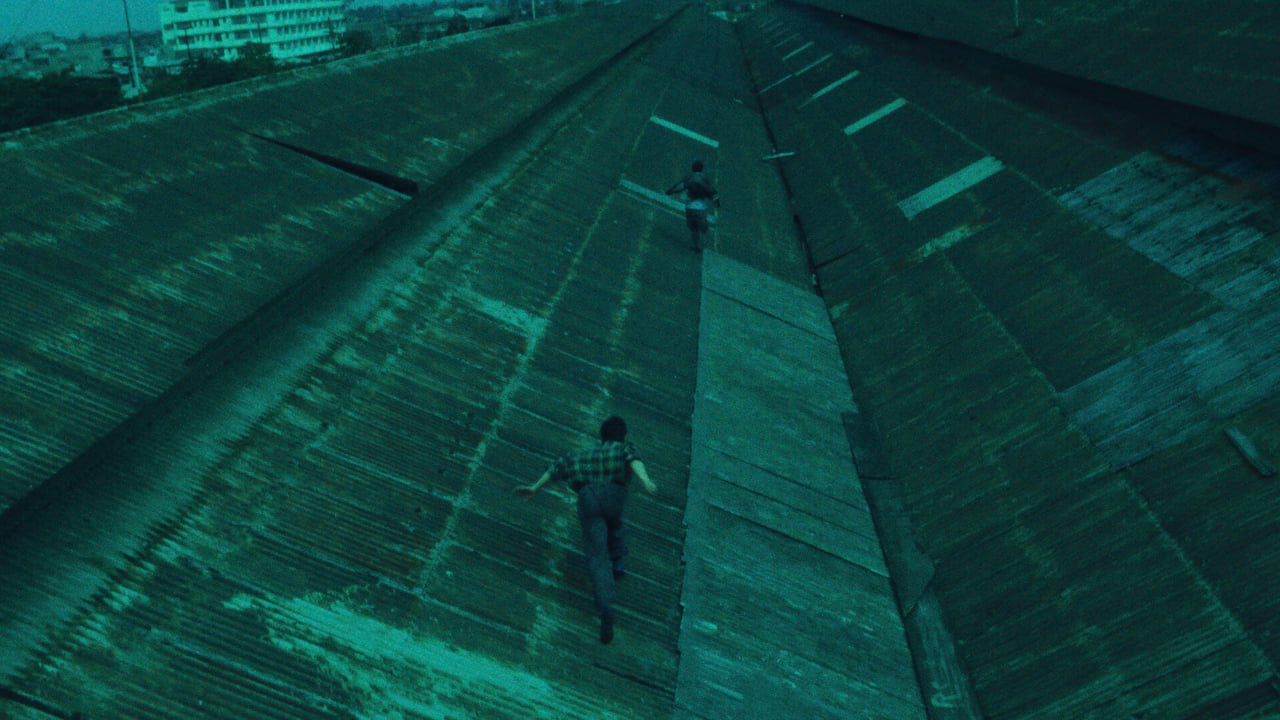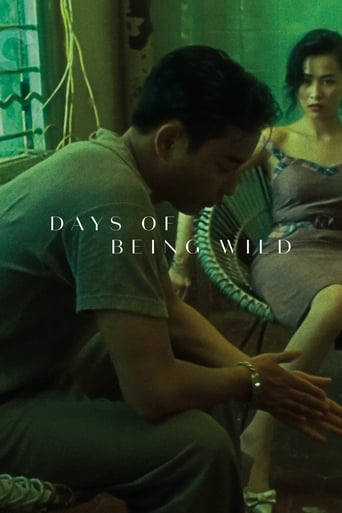Pierre Radulescu
This movie was WKW's second feature film, the first to collaborate with cinematographer Chris Doyle, the first to follow his artistic obsessions. The movie had a great cast: Leslie Cheung, Maggie Cheung, Carina Lau, Andy Lau, Rebecca Pan, Jacky Cheung, all these along with Tony Leung Chiu Wai (who played in a cameo). Despite all these assets the movie started by being a commercial failure (as the director told once, in Korea the attendance even threw things at the screen). The style of Wong Kar-Wai (or the style of Chris Doyle, or both) was simply too new, too unexpected.Years have passed and Wong Kar-Wai (along with Chris Doyle) became well-known worldwide, and each of their movies is now considered as iconic. I wouldn't get tired watching any of their movies as many times as it gets: each time I understand a nuance in more depth.What could be told in a few words about this movie? It's time and love, and it's a meta-story: other stories built within the main story, each of the embedded stories with a life and a poignancy of their own, unfolding without haste, while not impeding on the main story - chapels in a cathedral. You have the sensation of being there, everything has such an immediacy that it's like it happens to you, right there during the screening. There is the main character, a womanizer dreaming to find someday his estranged mother, meanwhile seducing and then getting rid of everything he meets, abusive and careless in all his relations, with men and women alike; there are the girls, seduced and abandoned; there are the other men, witnessing all this and falling for the girls, hopelessly... and it's like you are there, in the skin of each personage, as each of the embedded stories is flowing, as the main story is flowing, you are the womanizer, leaving sentimental carnage on your way, you are each girl, enjoying your erotic accomplishment, rejected, despaired, you are each of the men, empathizing with the girls, trying to help them, longing for them, you are the substitute mother, ambiguous in your feelings for the boy you raised, you are the real mother, not showing anything which is in your heart, not even to yourself.Days of Being Wild is considered as the first part in a loose trilogy dealing with love and time (together with In the Mood for Love and 2046). Actually love and time remained the preoccupation also in the movies following this so-called trilogy: think for instance at The Hand, WKW's episode from Eros, made in 2004 - and the preoccupation remains also in My Blueberry Nights (which is also a meta-story, by the way).All these movies mirroring love and time in countless ways. Time marked by the passing of histories of love replacing the passing of years, down to implosion: stories of seduction, stories of desire, stories of love just imagined, stories of longing, stories of despair. Love trying to destroy the reality of time: "I've heard that there's a kind of bird without legs that can only fly and fly, and sleep in the wind when it is tired; the bird only lands once in its life... that's when it dies." Time as illusion, love as illusion - time has lost any significance, because it was replaced by histories of love - while love exploded and lost any meaning from the very beginning - reality as illusion: "the fact is that the bird hasn't gone anywhere; it was dead from the beginning."
tavm
Days of Being Wild is the first film I've seen directed by Wong Kar-Wai as well as the first time I've seen any of the actors that I'll now list here: Leslie Cheung, Maggie Cheung, Andy Law, Carina Lau, and Tony Leung. Those beginning scenes with Leslie and Maggie are some of the most erotically charged I've seen in movies yet and I haven't seen too many adult dramas as you've probably guessed if you've read all my comments so far. The gradual, quiet, and eventual shattering desperateness that involves most of the characters made this movie very compelling even during very slow scenes in which nothing happens. Both Maggie and Carina Lau are sexy in their own way with their individual scenes with Leslie Cheung and their one confrontation is one of my favorite scenes here. Also loved Andy Lau's policeman character and his keeping Maggie company as she recovers from her affair with Leslie. Just about everything is compelling about Days of Being Wild though I admit being confused with Tony Leung's only scene at the end. Knowing that an unfinished sequel exists based on that frame makes me hope to one day get to be able to view it eventually...
tedg
Sublime suspension.A very satisfying affair: here's the first project where Kar-Wai Wong found his groove with the Spanish notion of metastory, the story about how one hesitates in resolving what they see in life. And how that is a matter of touch. And how touch is word — and how one can touch and speak with the eye.The first project with Doyle. And with Maggie. In a way, the first version of "Mood/2046." I think no one understands cinematically suspended longing like this man. When you enter this, you enter a space where everything is connected, every connection is passionately loaded and seen. But there is no logic, no comprehension, no future. Ever.Its anti-love but fulfilling nonetheless. Its empty in a rich way. Its about created selves in the French New Wave sense, but those selves then being honestly inhabited.If you love, really love, it has to rest on the earth in some way. There seem to be only a few ways to rest, the usual one being a matter of anchors and roots. This is different, a matter of frictionless liquidity — a local zone of antigravity where the love seems fixed by never really touches the planet. There are several metaphors in the story along these lines.We may not have the courage to love in this way even if we are among the few who chance love at all. But it is a rather sublime visit, this.Ted's Evaluation -- 3 of 3: Worth watching.

